Working together with our manufacturing partners, EMAC continuously collecting all useful information, tips, and other technical literatures such as tips of products design, tips of products selections and sharing other technical information. In the meantime, EMAC also invested in different kinds of testing to verify the uncertainty of products, such as the impact on the engine power losses of modify dry type engine exhaust system into water-cooled exhaust system. All these kinds of information are very useful for customers to choose the right products and design the products accordingly.
EMAC pays extremely attention to the new products, new application and products trends of our industry, to make sure that we following up with the dynamic changes of machinery industry, which we collecting the tendency of products and technology development inside of machinery industry. And our project case library can help all customers to find the similar case for most of applications or help customers to find a EMAC’s customer at their country or region.
Technical Articles
-

Thailand | Pump
EMAC's customer interview video of 2023, EMAC finished a series of customer interview with 10 different business partners from different countries and regions, most of videos are took at customer's company and factory, collecting all reviews and evaluations of EMAC...
-

The 8 Largest Ship Propellers in History
Ship propellers are the unsung heroes of maritime engineering, driving some of the world’s most iconic vessels. From container ships like Emma Maersk to legendary ocean liners like the Titanic, these colossal propellers have played a crucial role in shaping maritime ...
-
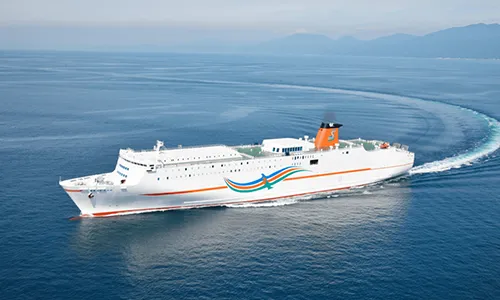
How Propeller Pitch and Diameter Affect Ship Performance
Propeller pitch and diameter are critical factors influencing a ship’s speed, fuel efficiency, and maneuverability. A higher pitch increases speed potential but demands more engine power, while a lower pitch enhances acceleration and control. Similarly, a larger diam...
-
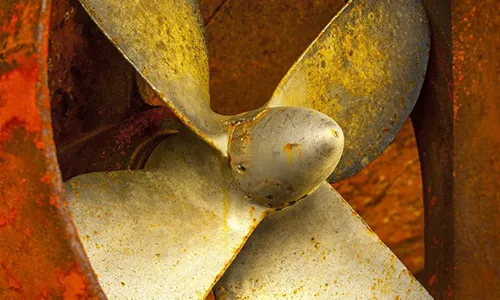
Fatigue Crack Detection in Marine Propellers
Fatigue cracks in marine propellers develop due to cyclic hydrodynamic stresses, cavitation, corrosion, and operational conditions. Detecting these cracks early is crucial for maintaining efficiency, preventing failures, and reducing repair costs. Common non-destruct...
-
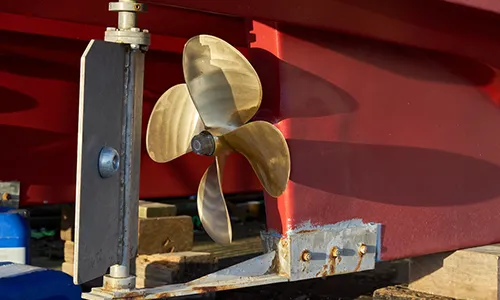
Best Practices for Storing Spare Ship Propellers
To prevent aging of spare ship propellers, they must be cleaned, stored in a dry and stable environment, positioned correctly, coated with protective layers, and regularly inspected. Proper storage minimizes corrosion, mechanical stress, and environmental damage, ens...
-
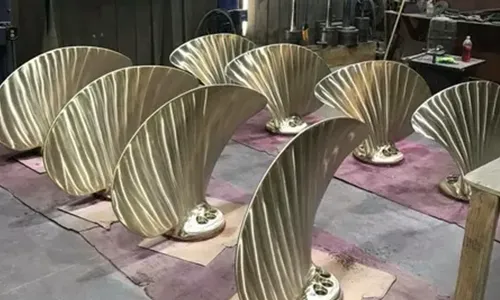
How to Determine if a Ship Propeller Blade Angle is Correct
The blade angle of a ship’s propeller significantly affects thrust, fuel efficiency, and mechanical load. To determine if the angle is correct, methods such as visual inspection, fuel efficiency monitoring, cavitation analysis, and sea trials can be used. Fixed-Pitch...
-

Maintenance and Inspection of Marine Propeller Lubrication Systems
The lubrication system of a marine propeller plays a key role in reducing friction, preventing corrosion, and ensuring smooth propulsion. Regular maintenance includes checking oil quality, inspecting stern tube seals, monitoring system pressure, and preventing water ...
-
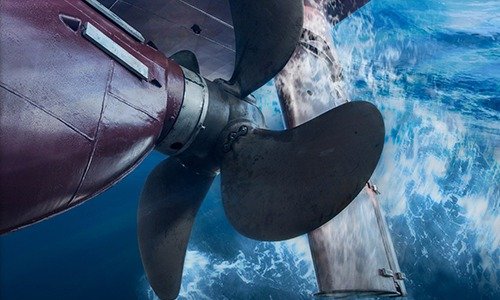
How to Reduce Propeller Drag and Improve Ship Speed
Excessive propeller drag can hinder ship speed and fuel efficiency. Factors such as marine fouling, cavitation, blade design, propeller-hull mismatch, and shaft misalignment contribute to increased resistance. Effective measures to reduce drag include regular cleanin...
-
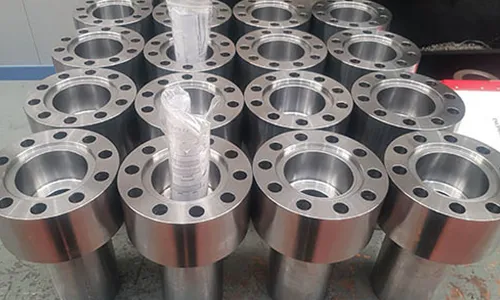
Understanding Ship Shafting Systems and Their Key Components
The shafting system is essential for transferring power from a ship’s engine to its propeller, ensuring efficient propulsion. It includes key components such as the hydraulic nut, propeller, nozzle, stern tube seal, bearings, stern tube, tail shaft, hydraulic couplin...
-
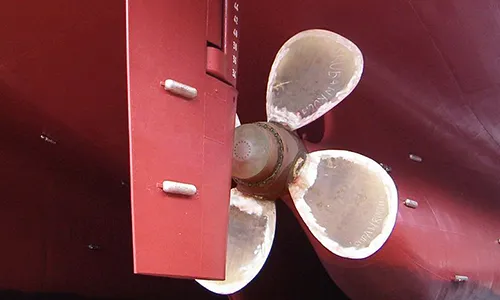
How Does a Ship Steer? Understanding Rudder Systems
A ship's rudder system is the key component responsible for steering by altering water flow and generating turning forces. Positioned at the stern, the rudder’s movement is controlled by the helm, which adjusts its angle to change the ship’s direction. Different rudd...
-

Understanding and Solving Propeller Imbalance in Ships
Propeller imbalance is a significant issue in marine propulsion that can arise due to manufacturing defects, blade damage from debris or cavitation, biofouling accumulation, or uneven material loss from corrosion. This imbalance leads to excessive vibrations, reduced...
-
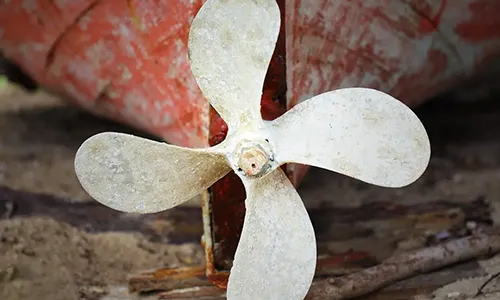
How Anti-Corrosion and Anti-Fouling Coatings Extend Propeller Lifespan
Anti-corrosion and anti-fouling coatings significantly extend the lifespan of ship propellers by protecting them from oxidation, marine biofouling, and structural degradation. These coatings improve fuel efficiency, reduce maintenance costs, and enhance propulsion pe...
-
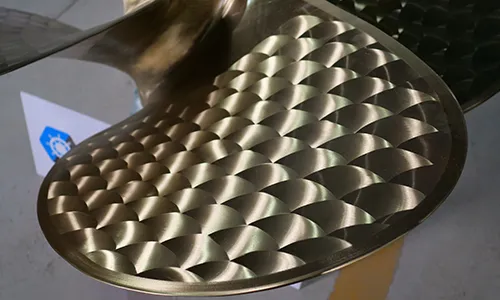
The Impact of Propeller Blade Number on Performance and Efficiency
The number of blades on a ship's propeller significantly affects performance, fuel efficiency, thrust, and cavitation resistance. Fewer blades reduce drag and improve speed, while more blades enhance stability and minimize cavitation. Three-blade propellers offer a b...
-
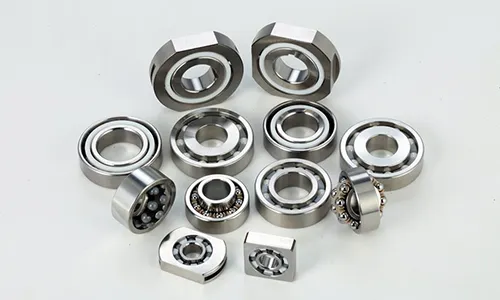
Maintenance Guide for Propeller Bearings and Lubrication Systems
Proper maintenance of propeller bearings and lubrication systems is essential for smooth operation, reduced wear, and extended lifespan. Key maintenance steps include regular lubrication checks, monitoring for wear or misalignment, and ensuring the correct lubricant ...
-
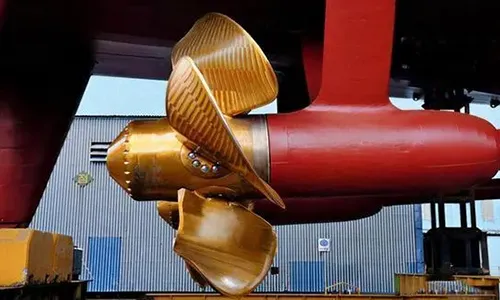
How to Determine If Your Ship’s Propeller Needs Replacement
A ship’s propeller is essential for performance and efficiency, but wear and damage can reduce its effectiveness. Key signs that indicate the need for replacement include visible cracks or bends, increased fuel consumption, excessive vibration, reduced speed, cavitat...
-
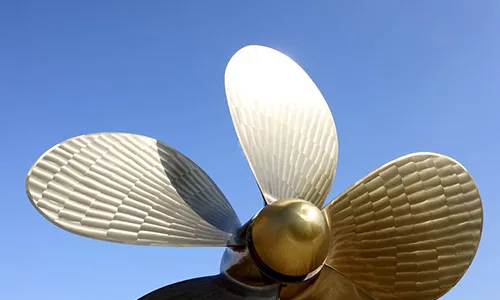
Choosing the Right Ship Propeller: Fixed-Pitch or Controllable-Pitch
Choosing between Fixed-Pitch Propellers (FPP) and Controllable-Pitch Propellers (CPP) is essential for optimizing vessel performance. FPPs are durable, cost-effective, and ideal for ships operating at constant speeds, such as cargo and bulk carriers. However, they of...
-

How to Prevent Biofouling on Ship Propellers
Marine biofouling, such as barnacle and algae accumulation on propellers, can significantly reduce efficiency, increase fuel consumption, and impact vessel maneuverability. To prevent this, several effective strategies can be employed: applying anti-fouling coatings ...
-

About Our Propeller Materials
The choice of propeller material significantly impacts a ship’s performance, lifespan, and cost. Manganese bronze (Cu1) is the most affordable option, with a lifespan of 3-5 years. It supports partial repairs but lacks durability, making it increasingly obsolete. It ...
-

Marine Propeller Design and Efficiency Optimization
Marine propellers are core components in the ship's power system, converting the engine's power into propulsion through rotation. The design of the propeller involves factors such as blade shape, angle, material, pitch and diameter, which directly affect the propulsi...
-

How to Convert the CUMMINS K19-M3 Marine Engine from Dry Exhaust to Wet Exhaust?
Converting a CUMMINS K19-M3 marine engine from a dry to a wet exhaust system requires modifications to both the exhaust and cooling systems. The exhaust pipe replacement is straightforward, but the cooling system adaptation is more complex, involving thermostat remov...
-

Indonesia | Construction – Customer Interview
EMAC's customer interview video of 2025, EMAC finished a series of customer interview with 10 different business partners from different countries and regions, most of videos are took at customer's company and factory, collecting all reviews and evaluations of EMAC...
-

Vietnam | Pump – Electric Motor
EMAC's customer interview video of 2024, EMAC finished a series of customer interview with 10 different business partners from different countries and regions, most of videos are took at customer's company and factory, collecting all reviews and evaluations of EMAC...
-

Malaysia | Construction – Ground Support Equipment
EMAC's customer interview video of 2023, EMAC finished a series of customer interview with 10 different business partners from different countries and regions, most of videos are took at customer's company and factory, collecting all reviews and evaluations of EMAC...
-

Thailand | Pump – Thailand Engineering Company Interview
EMAC's customer interview video of 2023, EMAC finished a series of customer interview with 10 different business partners from different countries and regions, most of videos are took at customer's company and factory, collecting all reviews and evaluations of EMAC, ...
-
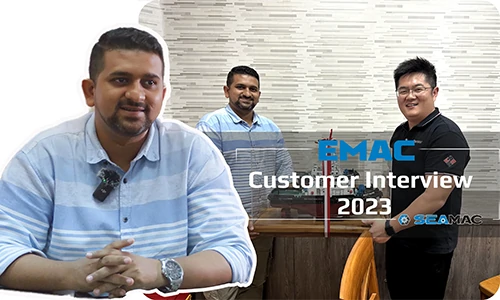
Indonesia | Marine – Indonesia Shipyard Interview
EMAC's customer interview video of 2023, EMAC finished a series of customer interview with 10 different business partners from different countries and regions, most of videos are took at customer's company and factory, collecting all reviews and evaluations of EMAC, ...
-

Application Scenarios of Marine Propellers
In summary, marine propellers have a wide range of application scenarios in the field of ships, covering commercial ships, military ships, yachts and other different types of ships. It is crucial to improve the performance and efficiency of ships. The development and...
-

How Propellers Work
In short, a propeller is a device that generates thrust through rotation, which enables the vehicle to move forward through Newton's third law. Its working principle is based on the design and material selection of the blades, and is widely used in aviation, navigati...
-

Marine Propeller Precautions
Correct use and maintenance of marine propellers is an important measure to ensure ship safety and operational efficiency. Ship operators should strictly follow the precautions, regularly inspect and maintain marine propellers to ensure smooth and safe operation of t...
-

How Difficult is it to Produce Large Ship Propellers
In general, the production of large ship propellers is a highly technical and difficult job, requiring rich professional knowledge and advanced manufacturing equipment. It is also an important manifestation of a country’s industrial strength.

